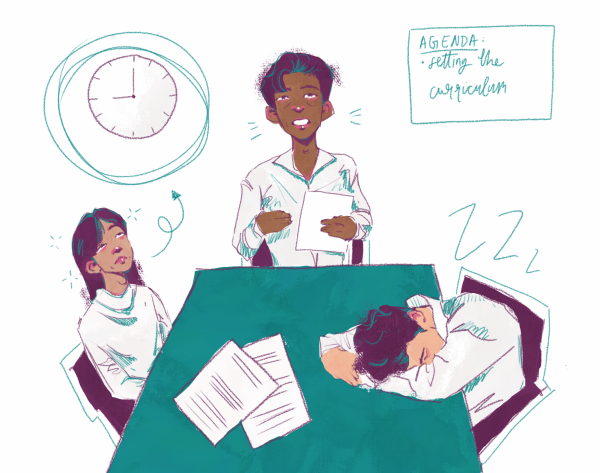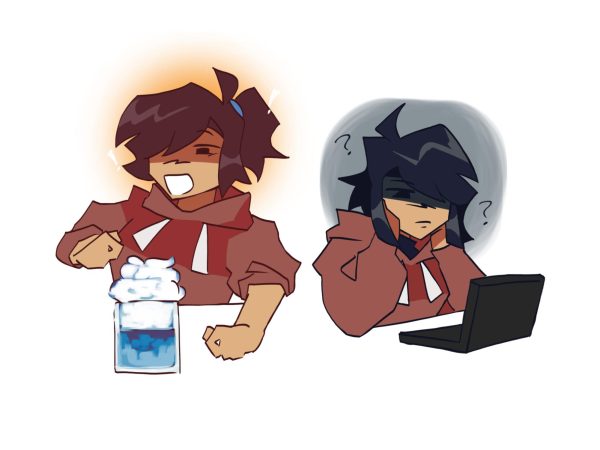Changes must be made to increase club productivity on campus
Board members of clubs need to be both passionate and motivated about what the club represents
At Palo Alto High School, school clubs have always been an effective place for students to express their passions and meet a new community of people, all with the same devotion to certain interests. There is a wide variety among the 80 clubs present on Paly campus, covering a plethora of interests ranging from Speech and Debate to Gender Equality to Ultimate Frisbee. Each club on campus has its own unique purpose that is promoted through club activities, events, creations and lectures.
Although there is most definitely a large range of clubs at Paly, a recurring problem with clubs on campus is the actual productivity of the club. Does every club hold regular meetings? Are the board members committed to finding ways to consistently include members? What kinds of activities do they do throughout the year?
Many clubs on campus apply for a semester charter and have a novel and intriguing idea for a club on campus. The concept is captivating and exciting, but after they have been deemed a chartered club, the club leaders fail to actually commit to constantly updating members with relevant activities and events that are productive and interactive.
Yes, there are obviously exceptions where weekly meetings or club events are not necessary to achieve the club’s goals — regardless, clubs at Paly should have some method of showing that they have actually been somewhat productive throughout the year. However, because there is currently no method to check the productivity of a club, there are several clubs on campus that fail to effectively uphold their club’s message throughout the year.
This is especially problematic for general members who are genuinely passionate about the topic. If the board fails to consistently come up with club-related activities that include members, then it deters the other members of the club from having a space where they can express their opinions and participate in activities related to the club’s purpose.
Junior Karina Chan experienced this first hand and comments on the difficulties of trying to become involved in a club that rarely held any meetings or activities.
“It was incredibly frustrating,” Chan said. “Watching friends from other schools have a great time being proactive and socializing was tantalizing, and it seemed unfair that Paly club culture wasn’t as involved because of unproductive management.”
When Chan was later was given leadership position in a different club, she was pleased by the results and felt that it was a rewarding experience.
“I feel like I really got the hang of high school once I took the initiative to start involving myself in leading clubs, but it took me a while to get to that point,” Chan said. “I regret not having that experience earlier on in my high school career.”
Like many other students, Chan was unable to get involved with clubs until her later years of high school due to the poor management in leadership positions. A good way to solve this problem would be for ASB to conduct surveys for club members every semester. The general members could give insight to the productivity of the club, including feedback on the number of meetings, events and activities that the board members organize. ASB could also ask the board members to write a short summary about the things that the club has been doing throughout the year and have the teacher advisors confirm.
Fortunately, ASB has already recognized this problem and has taken a different approach to solving this problem. Reid Walters, ASB Vice President, comments on the possibility of club regulation in the future and their current plans to solve it.
“This [is actually] something that we are really trying to improve this year,” Walters said. “This year we are going to do club visits to check up on all the clubs [and] we are going to have every officer visit a couple clubs before the end of the semester. I plan on doing this once a semester to make sure that clubs are being productive and fulfilling their charters.”
Even though ASB is making an effort to ensure club productivity, there are still ways for current club officers to ensure that the club continues to be active in promoting its message in the future.
Club structure has been defined so that the leadership positions of the board are largely allocated to the upperclassmen. Although in some clubs these older members are passionate and dedicated to the club, in many others clubs on campus, board members are indifferent about the issues that they are supposed to lead and represent. They simply hold a position on board, and do not hold the enthusiasm that a board member ought to have.
These people take the place of potentially enthusiastic and dedicated underclassmen, who are not given the opportunity to be on board because they are “too young” or have “little experience”.
Yes, at times underclassmen are unaware of how the club works or have not showcased clear commitment to the club yet, but an easy and efficient solution to this would be for club leaders to provide a specific leadership position dedicated to underclassmen.
With a special position solely for freshman and sophomores, underclassmen have the potential of integrating themselves into the leadership aspects of clubs on campus while they begin to explore the club and learn more about it.
People who are more motivated and passionate are given the opportunity to further incorporate themselves into taking on a more ambitious role to get them more involved in the club itself.
This also promotes long-term stability for the club in the future so that the club does not have to hastily search for apathetic upperclassmen to fill in board positions for semester club charters.
To ultimately improve the overall club productivity, it is crucial that the board reflects a group of passionate and motivated people who constantly give time and effort to further improve the club and include general members.
This is best achieved in two ways: some system of ASB club productivity regulation and for the current club board to seriously consider providing positions for underclassmen so that freshman and sophomores have an opportunity to become more involved in clubs and there is an overall long-term stability with devoted club leaders that stay with club from freshman year to senior year.
Your donation will support the student journalists of Palo Alto High School's newspaper












